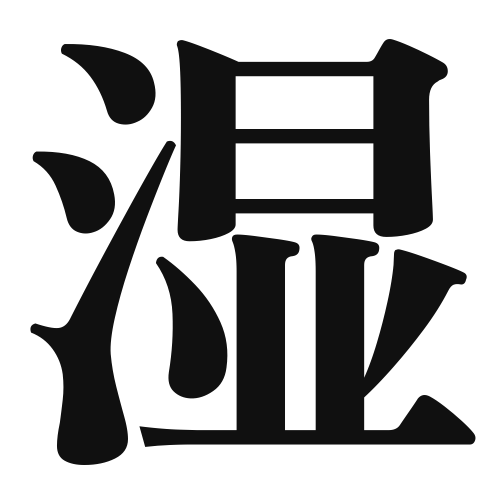1. Overview of Meaning
The kanji “湿” (shitsu) means “wet” or “damp.” It describes the state of being moist or having a high level of humidity.
2. Formation and Radical
The kanji “湿” is a phonetic-ideographic character (形声文字). It consists of the radical “水” (water) on the left, which indicates its relation to moisture, and the phonetic component “しつ” (shitsu) on the right, which provides the reading. The combination suggests a concept related to water and dampness.
3. Examples of Usage
Common words and phrases that include “湿” are:
- 湿気 (しっけ, shikke) – humidity
- 湿度 (しつど, shitsudo) – moisture content
- 湿布 (しっぷ, shippu) – wet compress
Example sentence in daily conversation:
「今日は湿気が多いですね。」(きょうはしっけがおおいですね。) – “It’s very humid today.”
4. Synonyms and Antonyms
Similar kanji with related meanings include:
- 濡れ (ぬれ, nure) – wet, which emphasizes the state of being soaked.
- 湿っぽい (しめっぽい, shimeppoi) – damp, which often has a negative connotation.
Antonyms include:
- 乾燥 (かんそう, kansou) – dryness, indicating a lack of moisture.
5. Cultural and Historical Background
The concept of “湿” is significant in Japanese culture, especially in relation to the climate and natural environment. High humidity is often associated with the rainy season, which is crucial for agriculture.
Proverbs and idiomatic expressions related to “湿” include:
- 「湿気が多いと体調を崩しやすい。」- “High humidity can easily lead to health issues.”
This reflects the importance of understanding moisture levels in daily life and health in Japan.
